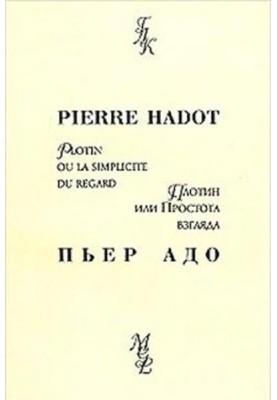Plotinus, or simplicity of view
 Instant download
Instant download
after payment (24/7)
 Wide range of formats
Wide range of formats
(for all gadgets)
 Full book
Full book
(including for Apple and Android)
We live and breathe in the common great European tradition, and both your and our culture have always drawn and continue to draw from common sources, among which should be mentioned the inexhaustible creativity of Plotinus. Plotinus represents an important moment in the history of rationalism: a bold attempt to understand, through strict deduction, the process of formation of reality, moving from simple to complex. From his point of view, starting from the unity of the initial principle, everything is interconnected, all things are connected with each other, “like the theorems of some science,” he says (V 9, 5, 16-26); For a certain proposition, he adds, makes sense only when it is united by a necessary cause-and-effect relationship with other scientific propositions. We are talking about an ideal that is fully realizable only in mathematics, but nevertheless imposes strict obligations on the one who puts forward it. As is known, this model of “systematic unity” had a great influence on German idealism through Schelling, Fichte and Hegel. But our common culture is characterized not only by rationalism and reliance on concepts. She inherited from Plato, and especially from Plotinus, the need for spiritual experience, which is reflected both in art, poetry, philosophy, and in religious life. It is in the paroxysm of desire that the soul, soaring above everything and above itself, experiences the dizzying presence of the infinite Good. Modern European thinkers probably had access to Plotinus's legacy through more numerous sources: first of all through the Church Fathers, then through the Italian Renaissance (M. Ficino and Giordano Bruno), and finally through German romanticism. In any case, its influence is very clear in philosophers such as Henri Bergson. It was A. Bergson who spoke about the call with which the mystics turn to us: “They do not ask for anything, and yet they receive. They do not need to be called upon, they simply exist; their existence is a call. I would like Plotinus’ call to help us better understand both our common spiritual history and the mystery of man’s position in the world.
Data sheet
- Name of the Author
- Пьер Адо
- Language
- Russian
- Translator
- Евгения Артуровна Штофф
















